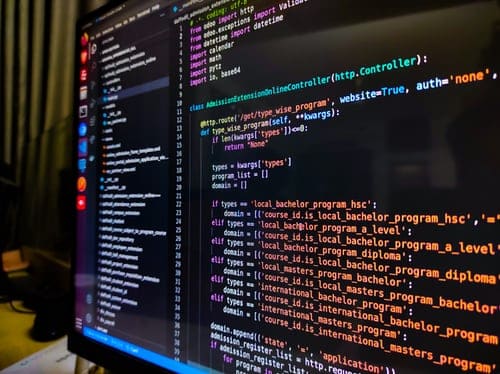What are the challenges of implementing real-time voice translation in international multiplayer games?

Gaming has always been a medium where boundaries are pushed, and new frontiers are explored. With the advent of massively multiplayer online games and an increasingly global gaming community, one of the most exciting developments is the advent of real-time voice translation. This technology promises to break down language barriers and create a more inclusive global gaming community. However, implementing it on a wide scale in games is not without its challenges. In this article, we delve into the issues that developers and startups face when dealing with this complex issue.
Balancing Game Performance with Real-Time Translation
The idea of a real-time voice translation feature in a game is naturally exciting for both players and developers. The ability to communicate with other players around the world, regardless of language, can create a more immersive and inclusive gaming experience. However, one of the significant challenges in implementing this feature is ensuring that it does not negatively affect the game's performance.
A lire aussi : How can AI be used to create more lifelike NPC interactions in open-world games?
Real-time translation requires substantial computational power, particularly when it needs to be done in an environment that is already resource-intensive, such as a video game. High-speed internet connection is a must, which might not always be available, especially in some parts of the world. Add to this the need for accurate voice recognition and machine learning algorithms operating in real-time, and you may have a recipe for lags, stutters, and frame rate drops, affecting the overall gaming experience.
Game developers need to strike a balance between implementing this technology, maintaining game performance, and ensuring that the game remains accessible to as many players as possible.
Lire également : What are the best techniques for creating realistic terrain in military simulation games?
Overcoming the Complexity of Language and Context
Language is a complex system that goes beyond mere words. Each language carries its unique cultural context, idioms, and expressions that are not easily translatable into another language. Real-time voice translation in a game needs to take this into account, which poses a significant challenge.
In the heat of a gaming moment, players use specific jargon, memes, and even create their own phrases that make sense within the context of the game. These can be difficult for a real-time translation system to accurately translate and convey the intended meaning to players who speak other languages.
For example, in English-speaking gaming communities, the phrase "gg" typically represents "good game". But, translating this phrase into another language would lose its cultural and contextual significance. The challenge then becomes not merely translating languages, but also localizing content.
Learning and Adapting to Gamer Language
The language used in gaming is not always formal or standardized. Players often use game-specific jargon, abbreviations, and acronyms that may be unfamiliar to non-players. There's a need for the translation system to learn and adapt to the gamer's language for it to be effective.
Machine learning and artificial intelligence come into play here. The system should be designed capable of learning from the players' communication patterns, understanding the context, and improving over time. However, this level of sophistication in real-time voice translation technology is still in its infancy. It requires significant research, time, and resources to develop, implement, and perfect.
Dealing with the Inherent Delay in Translation
Even with advanced technology and high-speed internet, there might still be a slight delay in translating and relaying the translated message during a game. In gaming, where every second can be crucial, this delay may disrupt the gaming experience.
The challenge lies in optimizing the translation process to minimize this delay as much as possible. Developers must find ways to speed up voice recognition, processing, translation, and audio output without sacrificing accuracy.
Addressing Privacy and Consent Issues
As with any technology that involves processing personal data, real-time voice translation in games can raise concerns about privacy and consent. Players may feel uncomfortable knowing that their voice chats are being translated and processed in real-time.
Developers need to ensure that they are transparent about how voice data is used, stored, and protected. They also have to provide options for players to opt-out of voice translation if they wish, without affecting their gaming experience.
The challenges of implementing real-time voice translation in international multiplayer games are substantial, but so are the potential benefits. It offers the opportunity to further unite the global gaming community, allowing players from different parts of the world to connect, communicate and compete without language barriers. Despite the hurdles, the future of gaming looks to be increasingly inclusive and linguistically diverse.
Envisioning the Future of Game Localization
As we move further into the digital age, the realm of video games is becoming increasingly global. The potential for real-time voice translation in international multiplayer games is vast, promising to break down language barriers and make online gaming a truly global experience. But to achieve this, significant strides need to be made in game localization.
Game localization goes beyond simply translating words. It involves adapting a game's content, including language, cultural references, and even visual elements to accommodate different markets around the world. In the context of real-time voice translation, localization will involve understanding and accurately translating not just the literal words spoken by players, but also the nuances, context, and gamer-specific lingo.
Machine translation, like Google Translate, has made great leaps in recent years. However, the dynamic and often informal nature of gamer language presents unique challenges. The high-speed, real-time chat during game streaming requires a level of nuance and context-awareness that current machine translation services might not fully provide.
Moreover, the vast array of languages spoken by gamers worldwide, each with its unique slang and idioms, adds another layer of complexity. This necessitates the development of sophisticated language learning algorithms capable of understanding and translating gamer language in real time. The technology also needs to be adaptive, able to learn from players' communication patterns and evolve with the ever-changing gaming language.
Despite these challenges, the potential benefits of breaking language barriers in online gaming are undeniable. As technology advances, we may soon see a future where real-time voice translation becomes a seamless part of the gaming experience.
Looking Ahead: Bridging Communication in the Gaming universe
In conclusion, implementing real-time voice translation in international multiplayer games presents several challenges, but it also opens up exciting opportunities. It promises a future where language barriers are broken down, enabling gamers from all corners of the world to connect and engage on a whole new level.
With the right balance between performance and translation accuracy, game developers can create a more inclusive and immersive gaming environment. The impact of this technology could extend beyond gaming, potentially revolutionizing other sectors such as customer service, language learning, and even social networking.
The challenges of developing translation memory that can understand and adapt to gamer language, achieving fast real-time communication without delay, and ensuring privacy and consent are substantial. However, the industry's relentless pursuit of innovation assures that these are not insurmountable.
As we move forward, it is crucial that developers, researchers, and the gaming community work together to refine and perfect this technology. The future of online gaming is likely to be increasingly linguistically diverse, presenting a global platform where players can speak languages from English to Mandarin, from League of Legends jargon to Fortnite slang, all seamlessly translated in real-time.
In the end, the goal is to make the world of video games a global community where anyone, regardless of their language skills, can enjoy and participate. With determination, collaboration, and technological advancement, this future may not be as far off as we think.
